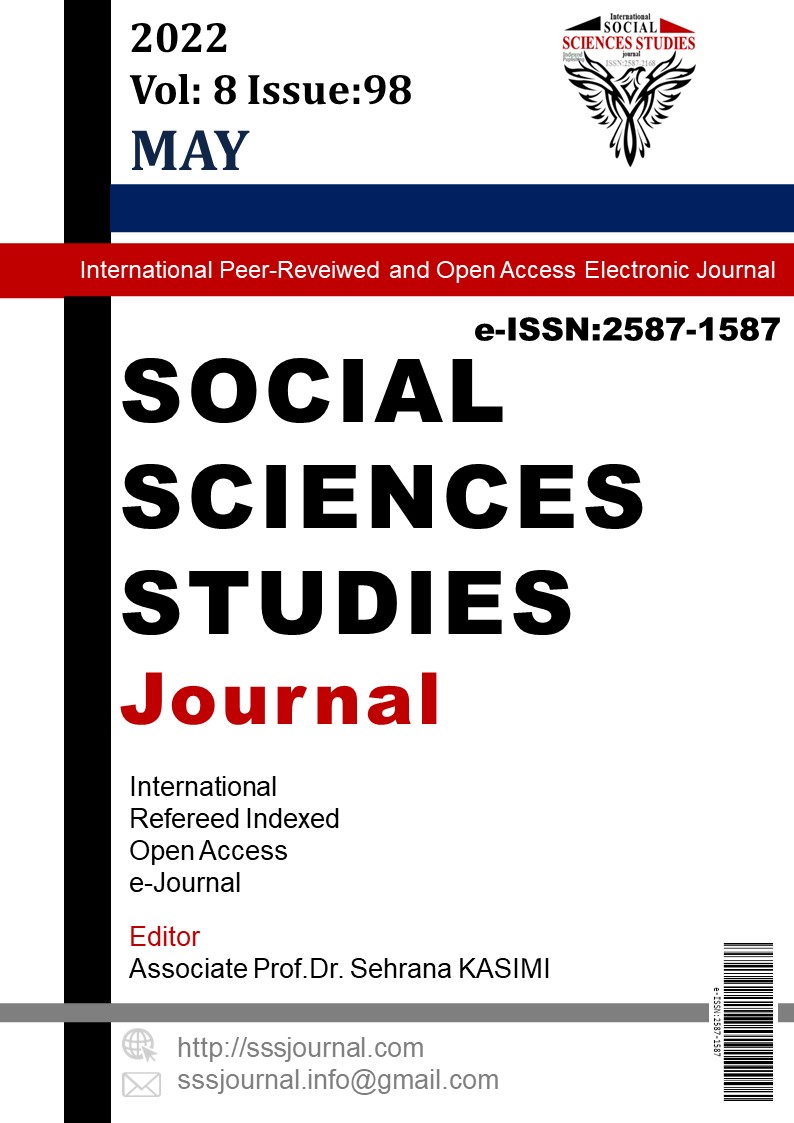Mentör Destekli Proje Yazma Eğitimi Sürecinde Mentör İle Menti Arasındaki İletişimin Etkinliğinin Saptanmasına Yönelik Nitel Bir Analiz
Author :
Abstract
Mentör destekli proje yazma eğitimi sürecinde mentörler ile mentiler arasındaki iletişimin etkinliğinin saptanması amacını taşıyan çalışma kapsamında öncelikle Atatürk Üniversitesi Proje Geliştirme ve Koordinasyon Ofisi’nin koordinasyonunda sekiz haftalık “Teorik ve Uygulamalı Proje Yazma Eğitim IV” başlıklı bir mentörlü proje yazma etkinliği düzenlenmiştir. Etkinlik kapsamında daha önce dış fon destekli proje deneyimi olmayan 20 araştırmacıya proje deneyimi olan 20 mentör atanmıştır. Eğitim programının bitiminin ardından projeye dahil olan 5 mentör ve 5 menti ile mülakat yapılarak tarafların iletişim becerileri ve süreç içerisindeki iletişim problemleri özelinde mentörlük sürecindeki iletişimin etkinliğine ilişkin görüşleri alınmıştır. Nitel araştırma yöntemlerinden bütüncül tekli durum deseninin kullanıldığı ve elde edilen verilerin betimsel analiz yöntemiyle analiz edildiği araştırma kapsamında katılımcıların mentörlük sürecinde iletişimi çok önemli bir unsur olarak gördükleri saptanmıştır. Çalışma sonucunda ayrıca katılımcıların tarafların temel iletişim becerilerine sahip olmalarının mentörlük sürecini daha etkin kıldığını düşündükleri, süreçteki partnerlerinin iletişim becerilerini yeterli buldukları ve önemli bir iletişim problemi yaşamadıkları tespit edilmiştir.
Keywords
Abstract
Within the scope of the study aiming to determine the effectiveness of communication between mentors and mentees during the mentor-supported project writing training process, an eight-week mentored project writing activity titled "Theoretical and Applied Project Writing Training IV" was organized under the coordination of Atatürk University Project Development and Coordination Office. Within the scope of the event, 20 mentors with project experience were assigned to 20 researchers who had no previous external funded project experience. After the end of the training program, interviews were conducted with 5 mentors and 5 mentees involved in the project, and their views on the effectiveness of communication in the mentoring process, in particular on the communication skills of the parties and the communication problems in the process, were received. Within the scope of the research, in which the single case-holistic design, which is one of the qualitative research methods, was used and the data obtained were analyzed with the descriptive analysis method, it was determined that the participants saw communication as a very important element in the mentoring process. As a result of the study, it was also determined that the participants thought that having the basic communication skills of the parties made the mentoring process more effective, they found the communication skills of their partners in the process sufficient and they did not experience any significant communication problems.
Keywords
- Bakioğlu A. (Ed.) (2015). Eğitimde Mentorluk, Nobel Yayıncılık, Ankara.
- Bakioğlu A. (Ed.) (2015). Eğitimde Mentorluk, Nobel Yayıncılık, Ankara.
- Buell, C. (2004). “Models of Mentoring in Communication”, Communication Education. 53 (1): 56-73.
- Clutterbuck, D. (1991). Everyone Needs A Mentor: Fostering Talent İn Your Organization (Fourth Edition), Chartered Institute of Personnel & Development, London.
- Farmer, B. (2005). “Mentoring Communication”, Review of Communication, 5 (2-3): 138-144.
- Gürüz, D. & Temel-Eğinli, A. (2011). Kişilerarası İletişim Bilgiler-Etkiler-Engeller (Geliştirilmiş 2. Basım), Nobel Yayıncılık, Ankara.
- Johnson, W. B. (2003). “A Framework For Conceptualizing Competence To Mentor”, Ethics & Behavior, 13 (2): 127–151.
- Kalbfleisch, P. J. (2002). “Communicating in Mentoring Relationships: A Theory For Enactment”, Communication Theory, 12 (1): 63-69.
- Searby, L. & Tripses, J. (2012). “Etkili Mentorlar Olabilmek İçin Okul Liderlerini Hazırlama” (Çev. S. Turan). (Ed. R. Yirci ve İ. Kocabaş), Dünyada Mentorluk Uygulamaları, ss.1-16, Pegem Akademi, İstanbul.
- Uçkun, G. & Kılınç, İ. (2007). Koçluk Ve Mentörlük, Ürün Yayınları, Ankara.
- Yıldırım, A. & Şimşek, H. (2023). Sosyal Bilimlerde Nitel Araştırma Yöntemleri, Seçkin Yayınları, Ankara.
- Yüksel-Şahin, F. (2008). “Communication Skill Levels in Turkish Prospective Teachers”, Journal of Social Behavior and Personality, 36 (9): 1283-1293.
- Yüksel-Şahin, F. (2011). Kişilerarası İlişkiler ve Etkili İletişim, Pegem Akademi, Ankara.





